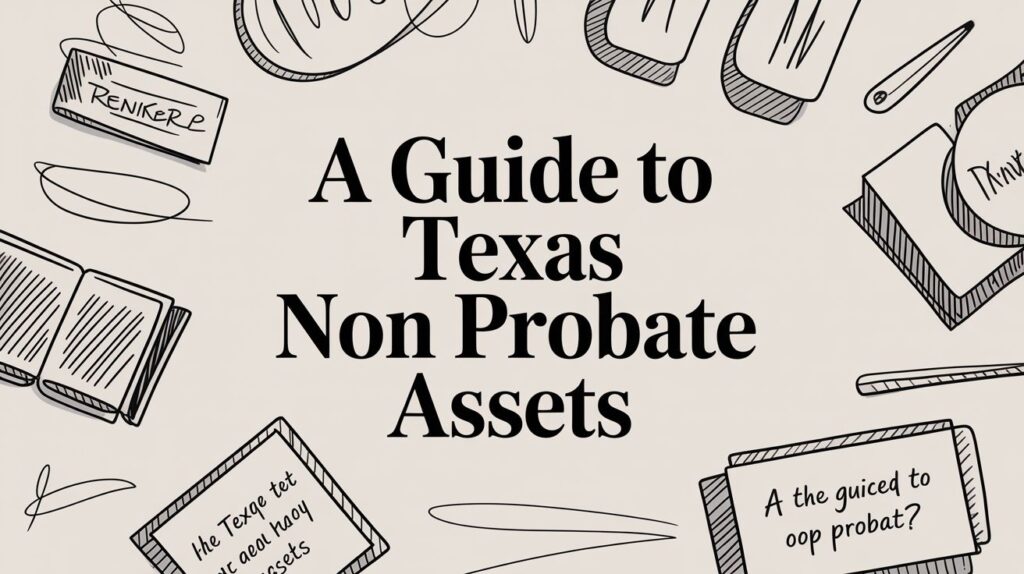If you’re wondering what county do you probate a will in Texas, you’re likely navigating the emotional and legal aftermath of losing someone close. And while grief is complicated enough, the probate process often adds another layer of confusion—especially when family members live in different counties, or the decedent owned property all over the state. Choosing the right county isn’t just a technicality. It can influence the entire case, from court timelines to legal fees and family dynamics.
In this guide, we’ll break down everything you need to know—from Texas probate law basics to how to determine the correct county for filing. Through practical examples, real-life stories, and expert analysis, we’ll answer the question: what county do you probate a will in Texas—and why getting that answer right matters more than you might think.

Understanding Texas Probate: Why County Matters
In Texas, probate refers to the legal process of validating a will, identifying heirs, paying debts, and distributing the estate. But here’s the thing: you can’t just walk into any courthouse and file probate papers. You have to file in the right county—or the court could reject your case, forcing costly delays.
That’s why people often ask, “what county do you probate a will in Texas?” The answer lies in one crucial detail: the decedent’s domicile at the time of death.
What Is Domicile?
Domicile means the deceased person’s primary, permanent residence—not where they died, vacationed, or held a P.O. Box. For example, if someone died in a Dallas hospital but lived in Travis County, probate should be filed in Travis County. That’s their domicile, even if they owned property elsewhere.
Key Legal Reference
Under Texas Estates Code Section 33.001, the probate venue should be the county where the decedent resided at the time of death. If the decedent did not have a domicile or fixed place of residence in Texas, then the will can be probated in the county where the majority of the estate’s property is located.
Real-Life Example: The Split Family Property Problem
Let’s take the story of Sandra, a retired schoolteacher who passed away in San Antonio (Bexar County), but had property in Kerrville and a second home in Galveston. Her children were split—some lived in Bexar County, others near Galveston.
At first, her daughter tried to file probate in Galveston County, thinking it would be easier for her commute. However, the judge denied it, citing lack of jurisdiction. Sandra’s official residence was in Bexar County—her driver’s license, mail, and homestead exemption were all registered there.
It was a costly mistake that delayed the probate process by six weeks.
So when you’re asking what county do you probate a will in Texas, always start with where the decedent lived—not what’s convenient.
Step-by-Step: How to Determine the Right County for Probate
Choosing the correct venue might feel overwhelming, but it boils down to three primary considerations:
1. Where Did the Decedent Live?
Start by checking:
- Mailing address on file
- Driver’s license or state ID
- Property tax records (homestead exemptions)
- Voter registration
These documents help establish the county of domicile. If multiple addresses exist, the one with the most legal and personal ties typically takes precedence.

2. Where Is the Property Located?
If the decedent had no fixed residence in Texas—maybe they traveled full-time or recently moved—the probate may take place in the county where the majority of their property is located. This could be real estate, bank accounts, oil rights, or business assets.
3. Did the Will Specify a Preferred Venue?
While not legally binding, some wills mention a preferred probate venue. Judges may consider it if there’s ambiguity, but statutory law usually takes priority. The will alone doesn’t override domicile.
Common Mistakes in Choosing a Probate County
When people ask, “what county do you probate a will in Texas,” they often make assumptions. Here are some of the most common errors:
- Filing in the county of death, rather than domicile
- Choosing a county based on convenience, not legality
- Assuming the location of property determines venue—even when the decedent lived elsewhere
- Overlooking changes in residency, such as recent moves or assisted living transitions
Mistakes like these aren’t just procedural—they can result in rejected petitions, court delays, and legal challenges from other heirs.
Story from the Field: The Assisted Living Complication
Consider James, who lived in Collin County his entire adult life. At age 87, he moved to a nursing facility in Tarrant County to be closer to his daughter. When he died six months later, his other children filed probate in Tarrant County.
But James never changed his voter registration, mailing address, or homestead exemption. The court ruled his legal residence remained in Collin County.
This real-life probate case emphasizes why the question what county do you probate a will in Texas must be answered with documentation—not guesswork.
What If There’s No Will?
When someone dies without a will (known as intestate), Texas law still requires probate—but the process changes. You’ll still need to identify the correct county.
In these cases:
- If the decedent had a domicile, file in that county.
- If there’s no clear domicile, file where most of the real and personal property is located.
If property is split across several counties and there’s no will, probate might require multiple actions—especially if out-of-state property is involved.
Ancillary Probate
If the decedent lived in Texas but owned out-of-state property, you may need ancillary probate in that state. But the original will still must be probated in the Texas county where they lived.

What Type of Court Handles Probate?
In Texas, not all counties have dedicated probate courts. The type of court that handles probate depends on where you’re filing. Understanding the differences between court types helps you set realistic expectations about speed, procedure, and complexity.
Statutory Probate Courts
Found in larger counties (e.g., Harris, Dallas, Bexar). These courts deal exclusively with probate matters and often move faster. They typically have judges and staff with specialized training in probate law, which can streamline complex estates.
County Courts at Law
In mid-sized counties, probate may fall here. These courts may also handle civil, criminal, or family matters, so probate cases share the docket with other types of proceedings.
Constitutional County Courts
Smaller or rural counties use general county courts. Judges in these courts may not specialize in probate, which can result in longer timelines or procedural inconsistencies.
Knowing the court type is just as important as knowing what county do you probate a will in Texas—because different courts may have different filing procedures and requirements. Choosing the right venue with the right court structure can drastically reduce processing time and confusion.
How to File Probate in the Right Texas County
Once you determine the proper venue, here’s a simplified breakdown of what comes next. Following each step closely ensures compliance and improves the likelihood of a smooth probate process.
- Obtain the original will (if there is one). Courts typically require the original document, not a copy, to begin probate.
- Hire a probate attorney—especially in larger counties or complex cases. An experienced attorney will guide you through forms, hearings, and potential disputes.
- File the Application for Probate in the right county. The application officially opens the case and identifies the executor or administrator.
- Attend a hearing before a judge to validate the will and appoint the executor. This short proceeding is often procedural but can become contentious if heirs disagree.
- Begin the administration process, including notice to creditors, inventory of assets, and final distribution. This phase involves detailed paperwork, court deadlines, and communication with beneficiaries.
It’s essential that the application goes to the correct court in the correct county. If you file in the wrong jurisdiction, the court may dismiss the case altogether. Worse, it may spark legal challenges from other family members who question your understanding of Texas probate law.
Tips to Avoid Probate Delays in the Wrong County
Here’s how to make sure you don’t end up asking the wrong version of what county do you probate a will in Texas:
- Double-check domicile records: IDs, mail, tax records, and utility bills.
- Review real estate ownership: If there’s out-of-state property, talk to an attorney about ancillary probate.
- Talk with co-heirs early: Align everyone before choosing a filing location.
- Use a probate lawyer familiar with Texas county courts.
- Gather documents early: Courts may require proof of residence to validate your choice.

Final Thoughts: Getting the County Right Matters More Than You Think
So, what county do you probate a will in Texas? The answer might sound simple—where the decedent lived—but the reality often involves more nuance. Probate is a legal process built on rules, not assumptions. Filing in the wrong county wastes time, causes family friction, and delays the resolution of the estate.
Getting the county right from the start sets everything else in motion. It determines the court’s authority, the procedures that apply, and how quickly the estate can be wrapped up. So take your time, do your homework, and talk to a professional if there’s any doubt.
Because in probate, the right county is not just a box to check—it’s the foundation for everything that comes next.








